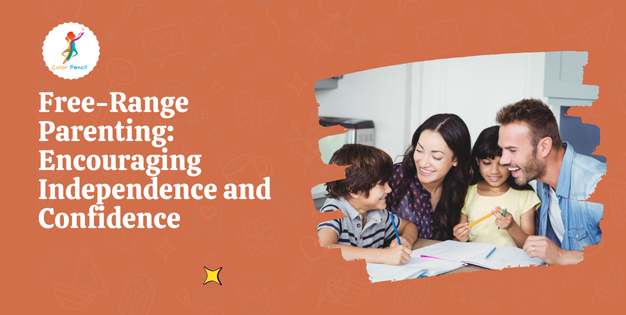
5 Ways to Teach Kids About the Origin of Easter
Curious about what’s the origin of Easter and how to make it meaningful for kids? You’re not alone. While Easter often brings images of chocolate

Understanding How Freedom Fosters Growth
Every child is naturally filled with juvenile curiosity waiting to be nurtured so as to spark unfathomable creativity. “Free-range parenting” systematically allows unsupervised exploration guided by certain instructions. Even children as little as four or five years old are given the empowerment to explore the world around themselves without being monitored at all times.
The fundamental concept revolves on trusting and allowing the child to accomplish milestones appropriate for their age independently. This not only nurtures a child’s self-reliance but also gives birth to intrinsic drive.

Children are allowed uncensored movement and to take on age-appropriate challenges by free range parenting. Under this method, parents believe and trust children learn labels such as enduring, responsible, and capable, when given an opportunity to succeed or fail.
Neglect and lack of supervision is not part of free range parenting. Free range parents are loving and attentive, but intentionally reduce support when a child is able to take care of certain tasks by themselves.
Free-range parenting is often chosen by parents who value self-reliance and believe that overcoming small, everyday challenges is vital for healthy development. Many parents also adopt this approach out of a desire to counterbalance modern trends of overprotection and micromanagement.
It is grounded in the belief that:

When done mindfully, free-range parenting has many advantages:
Adolescents who had appropriate freedom as children are able to navigate seamlessly to adulthood with self-assuredness.
Every parenting style has its pros and cons, and free-range parenting is no exception:
Having clear unchangeable guidelines and good communication while planning helps overcome difficulties.
Free-range parenting does not mean children are left to manage entirely on their own. It means providing gradual opportunities for independence, always matched with guidance and support.
Children need freedom, but they also need to know where the boundaries are. Create rules that allow exploration while ensuring safety.
Help children learn practical skills such as crossing the street safely, navigating new environments, or asking for help when needed.
Introduce freedom gradually. Allow children to make small choices, play independently at the park, or complete simple tasks on their own.
Freedom does not mean absence. Be there when your child needs support, encouragement, or guidance after they have tried something independently.
Allowing children to navigate challenges may be difficult at first, but over time, it strengthens their ability to manage life’s ups and downs.

This approach can be especially helpful when:
Free-range parenting does not dismiss supervision; it redefines it by placing trust in a child’s growing abilities.
Feeling Overwhelmed? Let’s Talk! Join Our Parent Forum and Get Expert Advice & Support!
Free-range parenting focuses on building self-sufficient, confident, and strong children who can depend on themselves and their judgment. Parents foster self-sufficient children by allowing them the freedom to make decisions and confront the world firsthand.
Striking the right mix of independence and structure, trust and supervision empowers parents to equip their children with the confidence and security they require to navigate the world.